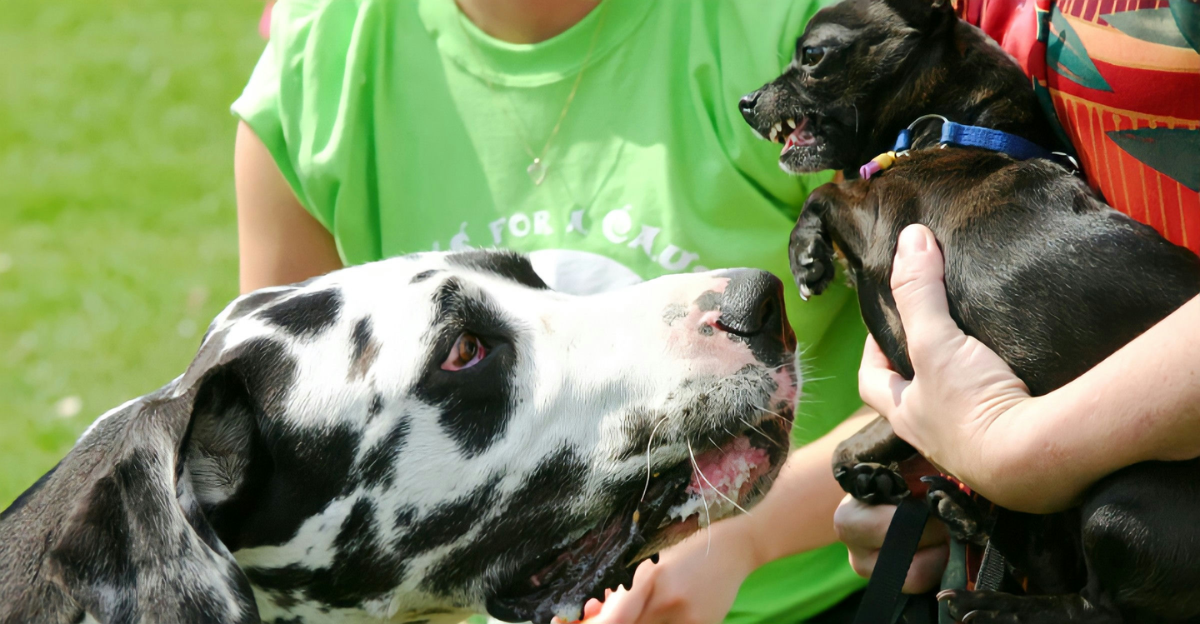
When it comes to choosing your canine friends, it’s important to keep their temperaments in mind, especially if they won’t be the only dog. Some petite pups come with big personalities, and not all play nicely with others. Certain small dog breeds are notorious for their stubborn streaks, territorial tendencies, or strong-willed natures, making them less likely to get along with fellow canines. Here are some dog breeds to remember, as they don’t always like having canine friends around.
1. Chihuahua
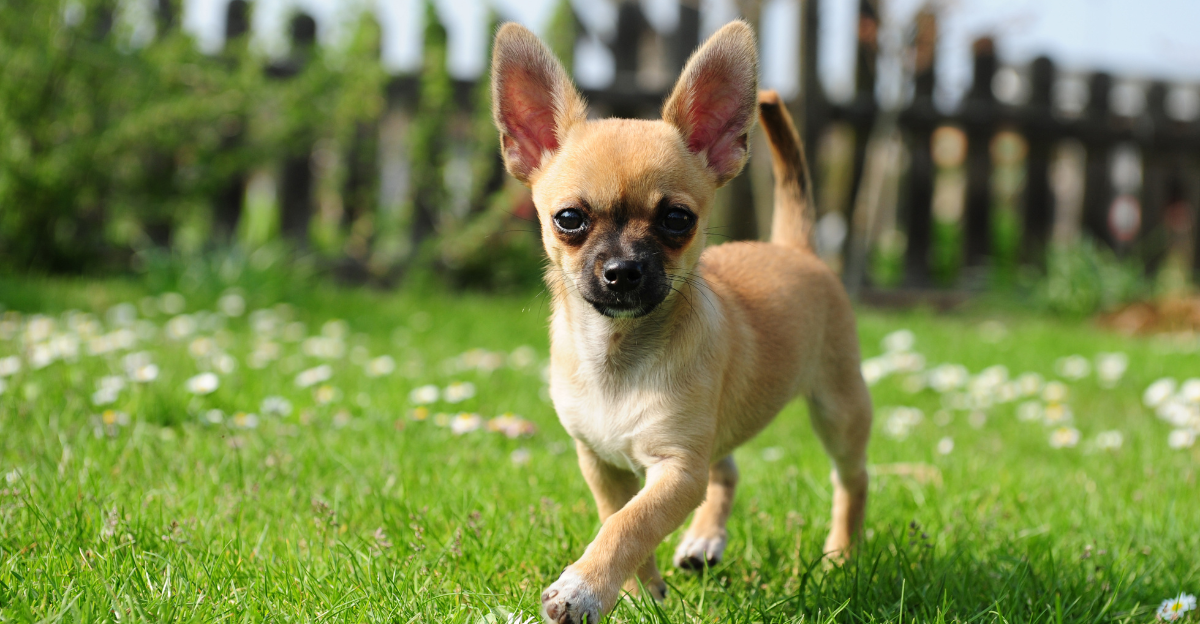
These pups might be small but have larger-than-life personalities and can be pretty sassy. While some Chihuahuas happily coexist with other dogs, they often prefer the company of their breed. Early socialization and consistent training are crucial to help them get along with other dogs. Because they are protective and loyal, Chihuahuas can be wary of strangers and may display territorial behavior if they feel their space is being invaded.
While they might be feisty, they make great family dogs and will give you all the love and cuddles you want. With proper socialization, Chihuahuas can learn to tolerate and befriend other dogs.
2. Miniature Pinscher
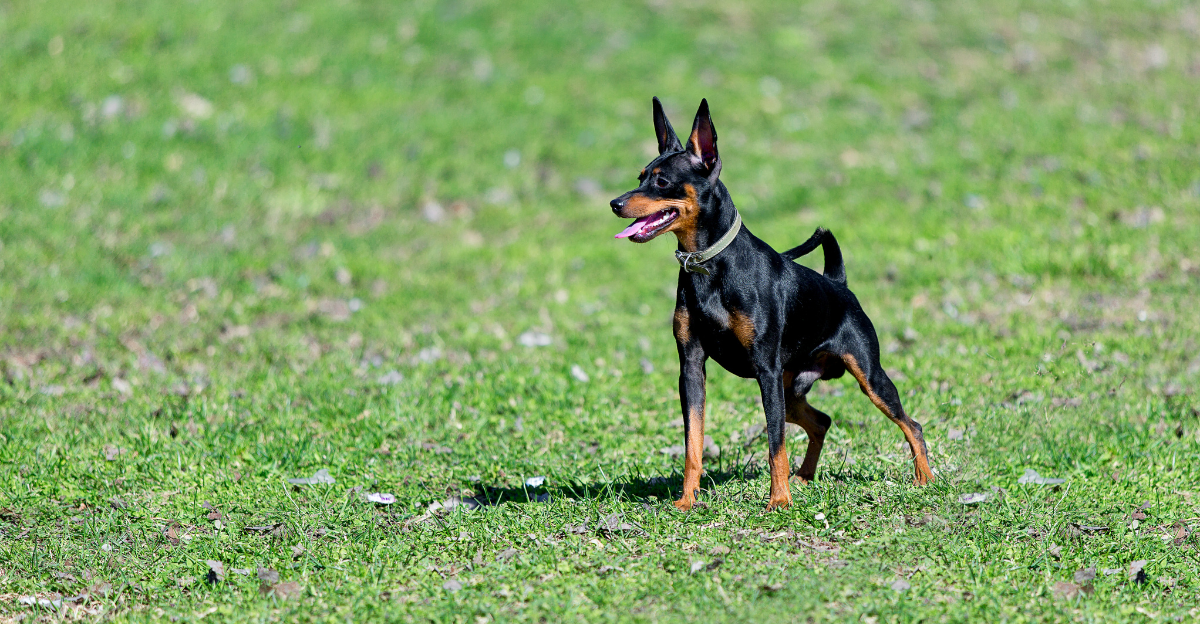
These pups are small dogs known for their fearless, energetic, and confident personalities. Despite their compact size, Min Pins have a terrier-like attitude that can make them quite dominant and sometimes aggressive toward unfamiliar dogs, regardless of size. They are loyal and affectionate with their families but are aloof or wary around strangers and other dogs.
Their spirited and independent nature means they often prefer to be the center of attention and may not easily tolerate other dogs invading their space. Early socialization and consistent training are essential to help them coexist peacefully with other pets, but even then, their strong-willed temperament can pose challenges in multi-dog households.
3. Jack Russell Terrier
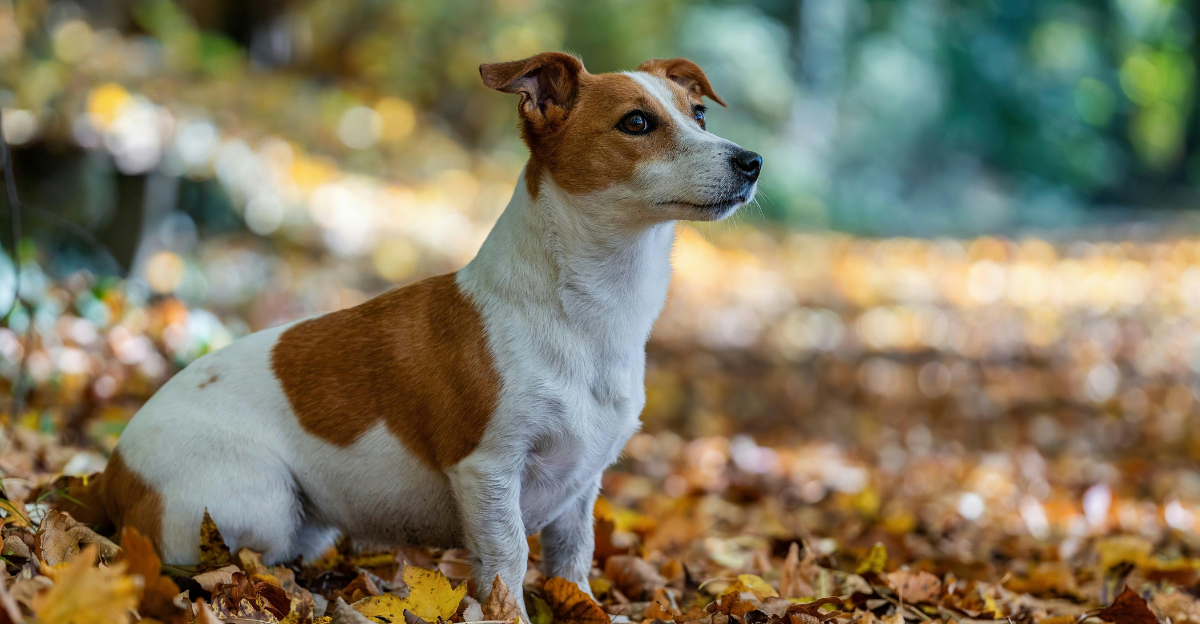
These small but highly energetic and bold pups are known for their strong hunting instincts and lively personality. They thrive when given plenty of exercise and mental stimulation, as they have a natural urge to explore, dig, and chase. Despite their affectionate nature toward their families, they can be assertive and sometimes aggressive toward other dogs, especially if not properly socialized from a young age.
Their vocal and territorial tendencies, combined with a fearless attitude, often make them less tolerant of other pets in the household.
4. Lhasa Apso
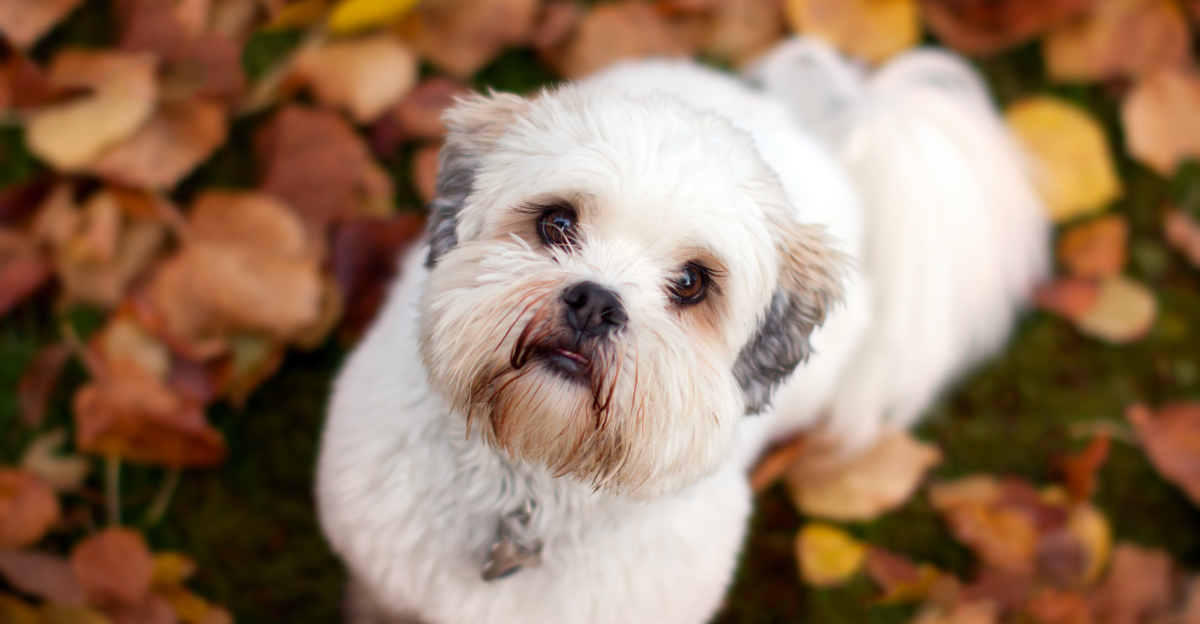
These little guys are remarkably confident and bold. They were originally bred in Tibet as watchdogs for monasteries. Despite their petite size, Lhasas have a lionhearted personality, as they are strong-willed and independent. They are fiercely loyal and affectionate with their family but tend to be wary and aloof around strangers and unfamiliar dogs.
This protective instinct can make them suspicious or snippy toward other dogs, especially if not properly socialized from a young age. While they can coexist with other pets, they often prefer to assert dominance and may not easily tolerate other dogs encroaching on their territory.
5. Scottish Terrier
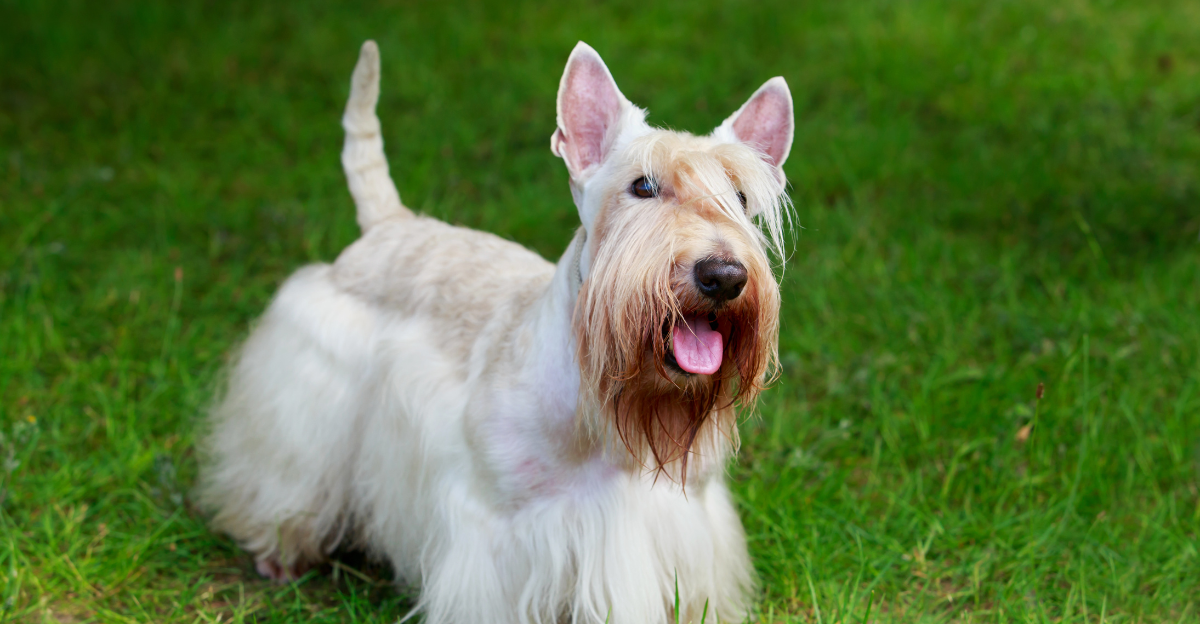
Scotties are fiercely independent and confident, known for their spirited and sometimes stubborn nature. While deeply loyal and affectionate with their family, Scotties tend to be wary and territorial around other dogs, often displaying a strong prey drive and a tendency to assert dominance. This breed’s feisty temperament and protective instincts can lead to aggressive behavior toward unfamiliar dogs, especially if they haven’t been socialized early and consistently.
Though they make excellent watchdogs and devoted companions, Scottish Terriers are generally best suited to homes where they are the only dogs, as their interactions with other dogs can be challenging and sometimes confrontational.
6. Pekingese
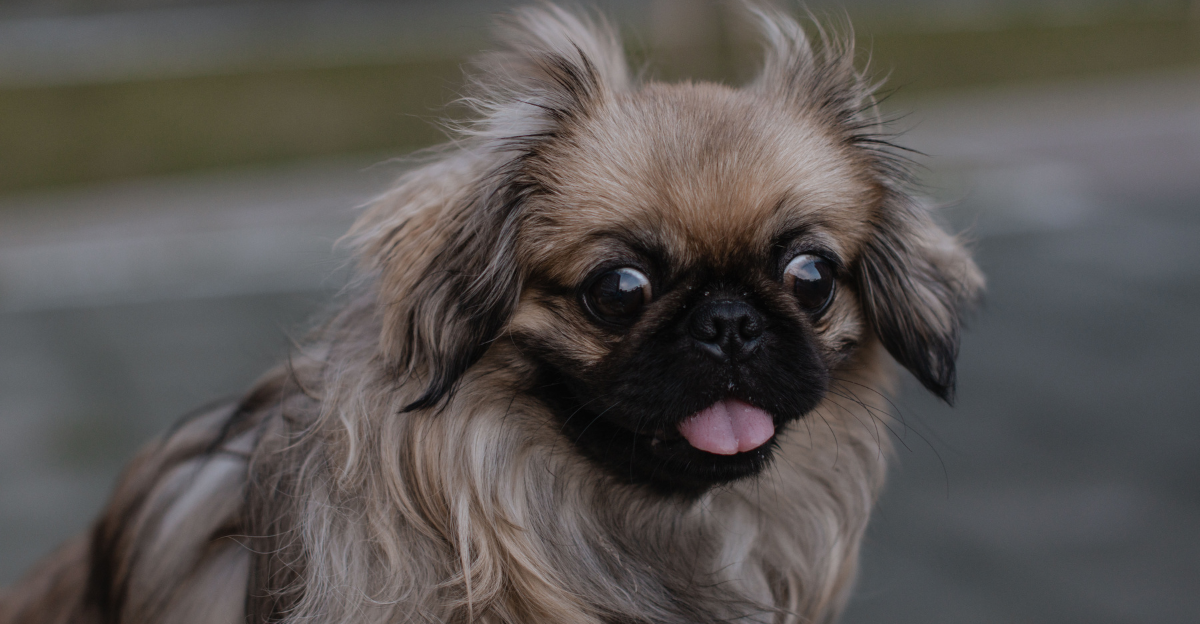
These little fluffballs are deeply affectionate and loyal to their families, but they often display an aloof or even wary attitude toward strangers and unfamiliar dogs, making early and thorough socialization essential. These dogs are confident, opinionated, and not afraid to assert themselves, which can sometimes lead to confrontations with other pets if boundaries are crossed.
Although many Pekingese can coexist peacefully with others, especially if raised together from puppyhood, their boldness and self-assured nature mean they are unlikely to back down from a challenge, regardless of their small size.
7. Shih Tzu

These little lions are affectionate, playful, and have an extroverted temperament. Bred to be companions, they are typically friendly and get along well with children and other pets, especially when socialized early. While they are generally eager to please and relatively easy to train using positive reinforcement, they can be a little stubborn sometimes.
Shih Tzus thrive on human company and have a moderate energy level. They enjoy cuddling with family and going for walks. It doesn’t hurt that they are super cute and always up for a cuddle!
8. Boston Terrier
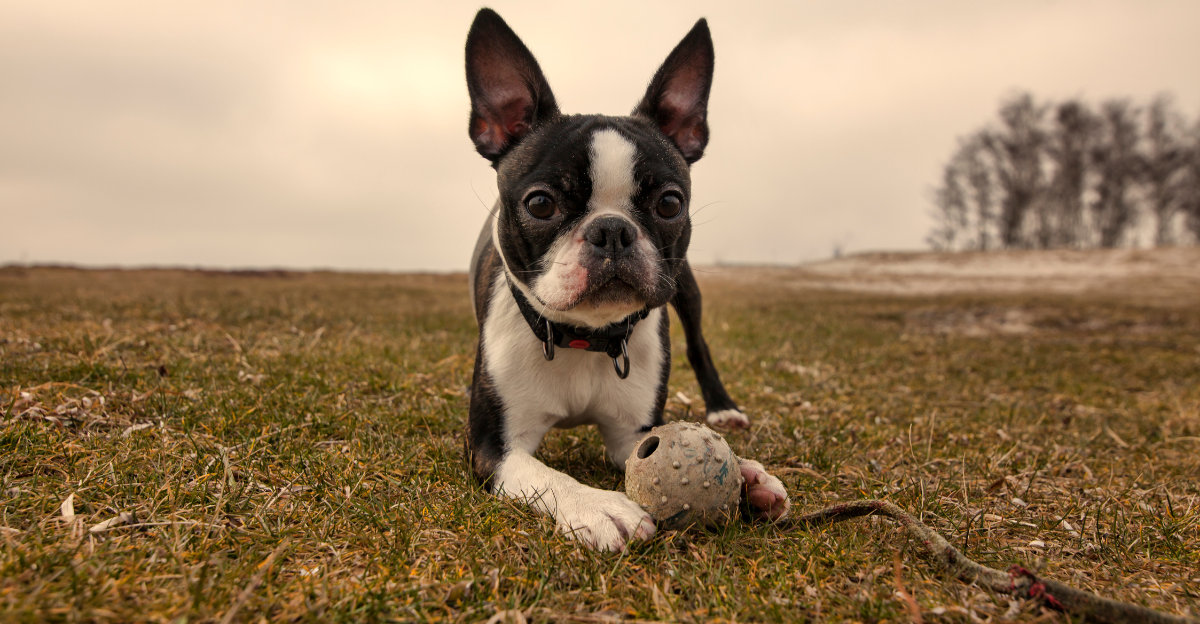
These little pups are often called the “American Gentleman” due to their distinctive tuxedo-like markings. They have a playful spirit with a strong-willed but eager-to-please nature. While generally good-natured and sociable, they can sometimes exhibit territorial or protective behavior toward other pets if not properly socialized from a young age. They tend to get along well with children, other dogs, and even cats when introduced early and handled with consistent, positive training.
Their intelligence and adaptability make them excellent companions for apartment living, although their flat-faced structure means they are sensitive to extreme temperatures and prone to breathing difficulties.
9. Cocker Spaniel
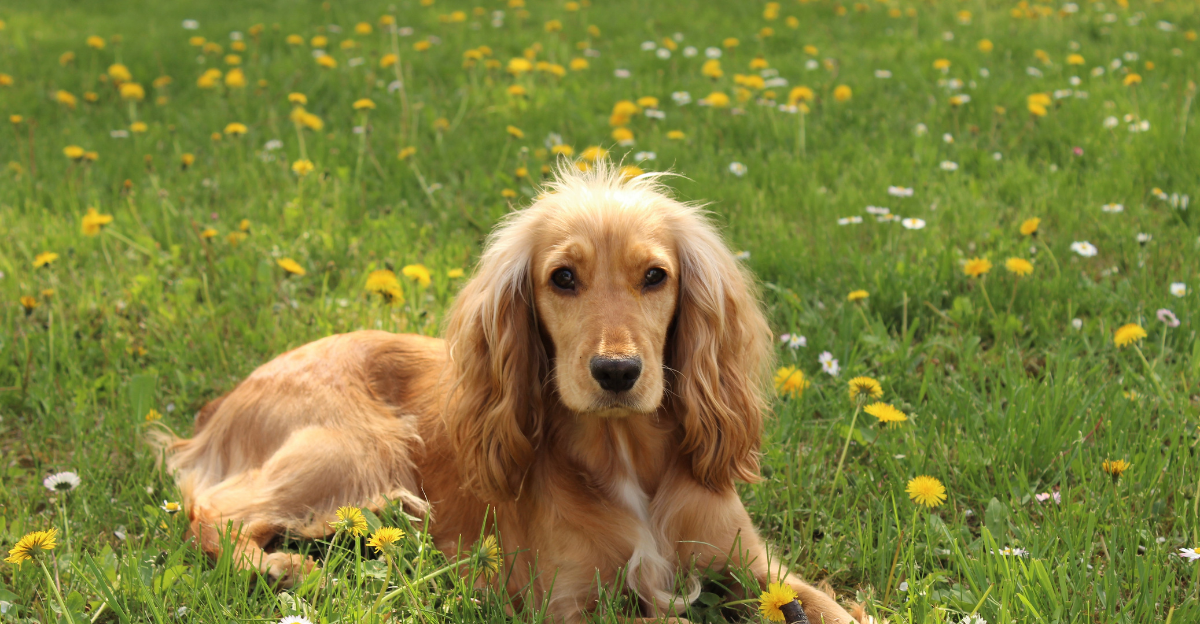
These pups are gentle, affectionate, and lively, making them popular family pets. Unlike many small breeds that may struggle with other dogs, Cocker Spaniels generally get along well with other animals when properly socialized from an early age. Their friendly and easy-going temperament means they are usually non-aggressive and enjoy the company of both people and pets.
However, their sensitivity makes them respond best to gentle, consistent training and positive reinforcement. While they can be energetic and playful, they also have a calm side, making them adaptable to various household dynamics.
Explore more of our trending stories and hit Follow to keep them coming to your feed!

Don’t miss out on more stories like this! Hit the Follow button at the top of this article to stay updated with the latest news. Share your thoughts in the comments—we’d love to hear from you!







